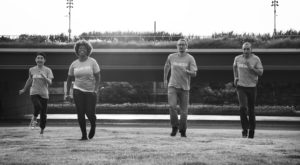Rural Programming by Philanthropy Serving Organizations

Summary Report to the Field #2: Philanthropy Serving Organizations and Rural-Focused Activity on Behalf of Members
This is the second in a series of brief summaries representing contributions to the philanthropic field as part of the work of the national Rural Philanthropic Analysis (RPA) project housed at Campbell University in Buies Creek, North Carolina. Report #1 reported and reflected on a survey and interview process with 22 national rural associations whereby national rural leaders described their experiences with philanthropy and their recommendations for national foundations.
Given that the majority of staffed grantmaking foundations belong to one or more Philanthropy Serving Organizations (PSOs), we have hypothesized that these groups would be excellent starting points for supporting a rural philanthropy movement because of their level of recent engagement in rural programming for their members.
To begin to get an understanding of past and present rural activity by PSOs, we conducted an in-depth examination of the websites of 35 PSOs. The majority of groups were determined from lists included on the Council on Foundations website and United Philanthropy Forum website, and four groups were determined from other research. For purposes of this phase of discovery, state and regional PSOs based on geography (e.g. North Carolina Network of Grantmakers or Philanthropy Northwest) were not included. A summary report on rural activity with those groups will be issued later this year.
To support the integrity of the process, RPA staff and graduate assistants were trained to identify specific categories of rural programming that has occurred over the past five years. These categories included annual meeting sessions or conferences, webinars, newsletters and blog posts, rural sub-groups, leadership opportunities, and other listed resources.
In summary, 28 of the PSOs demonstrated some prior or planned engagement around rural issues, to varying degrees. For example, content of the groups with less rural involvement tended to be limited to acknowledgment of rural issues in publications and webinars. Groups with extensive rural engagement tended to consistently publish rural-focused resources and launch collaborative and focused initiatives. Overall, the groups with significant rural engagement were population focused (e.g. Immigrants and Refugees, LGBTQ, Asian and Pacific Islanders), issue-focused (e.g. health, education, arts, voter participation) and organized around types of philanthropic structures (e.g. small funders, family funders). Generally, there appeared to be little to no joint work across PSOs with respect to rural. Particularly absent were efforts that work across issues and populations in a specific geography like Appalachia or the rural Southwest. This is notable as the most effective rural philanthropy supports communities working across issues concurrently or in a layered fashion in service to cultural and leadership structures in many rural regions.
 This examination of PSO rural engagement reveals an opportunity to bring together these PSOs across rural content in ways that can leverage impact through these existing structures. Importantly, the examination provided a point-in-time look at the current rural interests of PSO members. The level of rural activity was, in fact, moderately higher than anticipated by RPA staff. This early stage of discovery leads to the need for an engaged discussion with PSOs on how to better align their efforts across organizations in service to their rural-serving members and, ultimately, the rural populations and issues. For further information on this survey of PSOs, please contact Anna Ault at ault@campbell.edu.
This examination of PSO rural engagement reveals an opportunity to bring together these PSOs across rural content in ways that can leverage impact through these existing structures. Importantly, the examination provided a point-in-time look at the current rural interests of PSO members. The level of rural activity was, in fact, moderately higher than anticipated by RPA staff. This early stage of discovery leads to the need for an engaged discussion with PSOs on how to better align their efforts across organizations in service to their rural-serving members and, ultimately, the rural populations and issues. For further information on this survey of PSOs, please contact Anna Ault at ault@campbell.edu.

